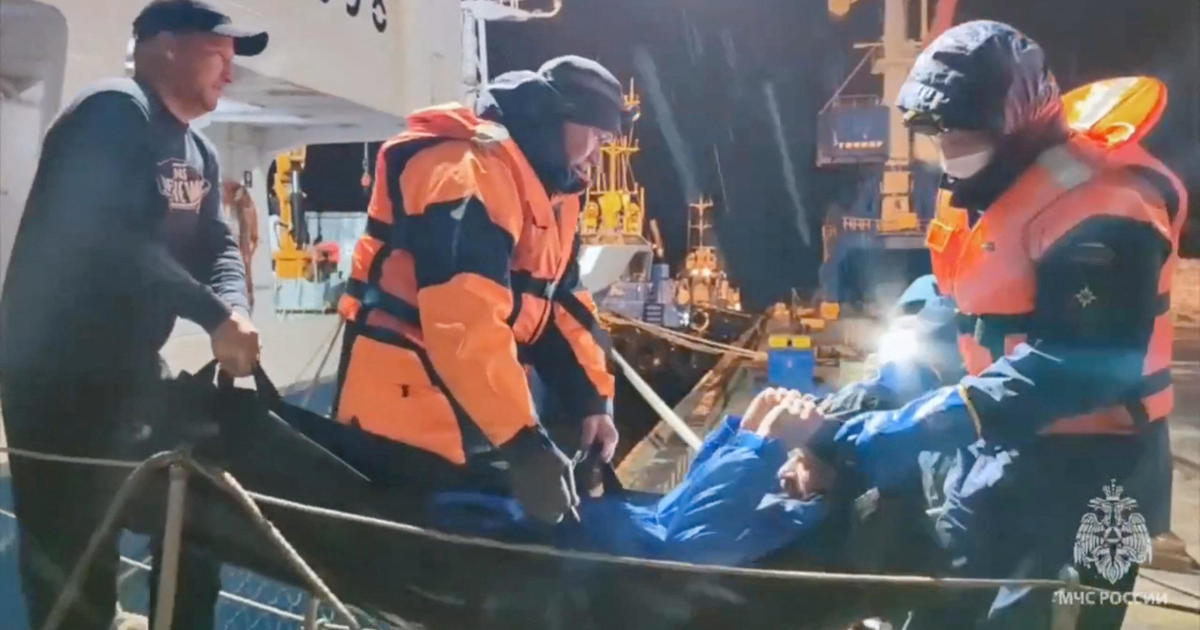A remarkable survival story emerged from the unforgiving Sea of Okhotsk, where a Russian man endured over two months adrift in a tiny inflatable boat. This incredible ordeal, however, came at a devastating cost, as his brother and nephew perished during the same harrowing experience. The survivor, identified as Mikhail Pichugin, was rescued by a fishing vessel near the Kamchatka Peninsula, highlighting the resilience of the human spirit and the unpredictable nature of the sea. While the details surrounding their journey remain partially unclear, the story underscores the dangers of seafaring and the importance of proper preparation.
The Miraculous Rescue of Mikhail Pichugin
The ill-fated voyage
Mikhail Pichugin, along with his brother and nephew, embarked on a whale-watching trip to the Shantar Islands in early August. Their journey, initially promising, took a tragic turn when their boat’s engine failed on August 9th, leaving them stranded in the treacherous Sea of Okhotsk. The Sea of Okhotsk, notorious for its unpredictable weather and frigid temperatures, presented an almost insurmountable challenge to their survival. Initial supplies, which included enough food for two weeks, warm clothing, life jackets, flares, and approximately five gallons of water, proved insufficient for their prolonged ordeal.
Two Months at Sea
The men’s small inflatable boat, now at the mercy of the unforgiving currents and gales of the Sea of Okhotsk, became their only refuge for more than two months. Pichugin was found severely emaciated, having lost roughly half his body weight. The conditions faced by the trio were extreme; they braved freezing temperatures, relentless storms, and the constant threat of hypothermia and dehydration. The lack of food and water further compounded their difficulties. His incredible survival is a testament to his sheer willpower and adaptability in the face of almost impossible circumstances. Upon rescue, his weight was approximately 110 pounds, a stark indication of the hardship he endured.
Discovery and Rescue
After two months adrift, the trio’s tiny boat was unexpectedly spotted on radar by the fishing vessel Angel. Initially mistaken for debris, a closer examination revealed Pichugin, desperately signaling for help. The crew of the Angel acted swiftly, rescuing him and subsequently discovering the bodies of his brother and nephew, secured to the boat to prevent them from being washed away. This heartbreaking discovery underscored the tragic price paid during this desperate struggle for survival. The rescue occurred approximately 11 nautical miles off Kamchatka’s shore, a considerable distance from their original departure point on Sakhalin Island. Pichugin’s desperate cries of “come here!” as he was hauled aboard highlighted the critical state he was in.
The Aftermath: Investigation and Medical Care
Medical condition and recovery
Upon rescue, Pichugin was immediately transported to a Magadan hospital, suffering from severe dehydration and hypothermia. Though his condition was initially precarious, doctors reported he was in stable condition. His remarkable survival story has sparked considerable attention, but there was little explanation as to exactly how he remained alive through two months of harsh conditions. Further, there was also no clear account of how or when the brother and nephew perished. The fact that his body weight dropped so significantly underscores the magnitude of the ordeal faced.
Criminal Investigation
The prosecutor’s office launched a preliminary criminal investigation into the deaths of Pichugin’s brother and nephew, focusing on potential violations of safety regulations that may have contributed to the tragic outcome. This investigation aims to determine if negligence played a role in the incident and prevent future accidents. Such events should highlight the importance of adequate safety measures and preparations before any maritime endeavor.
Comparing Pichugin’s Survival to Other Notable Cases
Similar Survival Stories
Pichugin’s survival echoes similar remarkable accounts of prolonged survival at sea. One example is the 1960 case of four Soviet soldiers who survived 49 days adrift in the Pacific Ocean. These instances emphasize the human capacity for resilience, and provide a study of survival skills applied under extreme pressure. In another notable incident, Australian sailor Tim Shaddock and his dog survived over two months adrift after their boat sustained damage. These case studies highlight the vital lessons of preparedness and the importance of survival training in such precarious situations. The similarities lie not only in the sheer endurance needed but also in the challenges faced from weather patterns and resource availability.
Lessons Learned and Importance of Preparedness
Pichugin’s story, and comparable tales, emphasize the critical role of comprehensive preparation for any sea voyage. While his tale shows immense resilience, his brother and nephew perished, emphasizing the importance of preparation for all types of emergencies at sea. It shows the devastating lack of provisions, the harsh realities of limited resource management. Having ample supplies is often the difference between survival and loss, something everyone embarking on a journey must acknowledge. Proper safety equipment, sufficient supplies, and adherence to safety regulations can significantly impact outcomes, making all the difference in the margin between life and death in extremely challenging circumstances. Survival at sea can depend on a great many factors, including training, preparation, luck and the natural resiliency of the human spirit.
Takeaway Points
- The survival of Mikhail Pichugin after over two months adrift in the Sea of Okhotsk is a testament to human resilience.
- The tragic loss of his brother and nephew highlights the dangers of seafaring and underscores the critical importance of thorough preparation and adherence to safety regulations.
- Pichugin’s story, along with similar accounts, provides valuable insights into survival techniques and the need for comprehensive preparedness before venturing into the unpredictable conditions of the sea.
- Investigations into such incidents are crucial for identifying potential safety failings and preventing similar tragedies in the future.
- The Sea of Okhotsk presents extreme challenges for any maritime activity.




